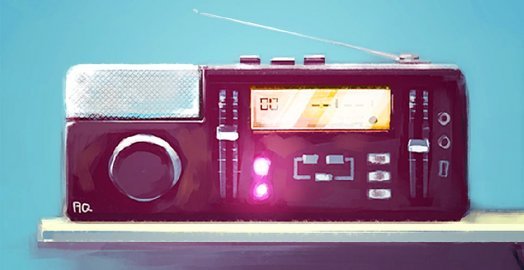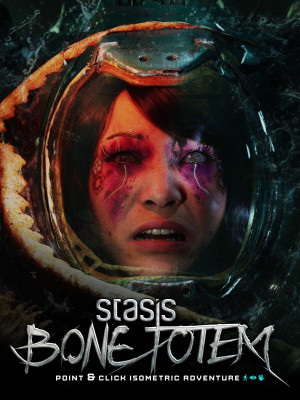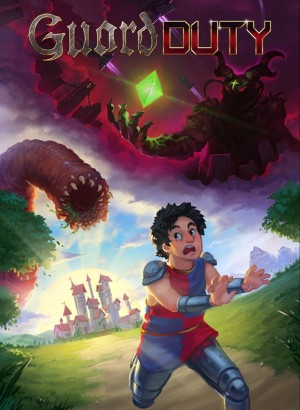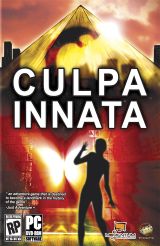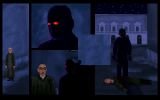Review for Alt-Frequencies
I am old enough to proudly say that I grew up next to a radio. And by radio, I don’t mean some futuristic machine with a touch-screen display allowing me to instantly select one of hundreds of satellite-beamed crystal-clear signals. I mean an honest-to-goodness radio with knobs and switches, where as a nine-year-old I flipped on the Amplitude Modulation and carefully, precisely turned the dial, listening for the clearest point where I could listen to the play-by-play of my beloved professional basketball team with a minimum of static interference. As a teenager, I then flipped the switch to Frequency Modulation and found new heroes in the local “morning zoo” jocks whose goofy stunts and raunchy commentary had me certain of my career path at age sixteen. Long before podcasts, long before YouTube—radio was the platform.
Radios have been used tangentially in games before, usually as background flavor, but Alt-Frequencies—from French studio Accidental Queens, developers of the well-received A Normal Lost Phone and its sequel—is a game that takes the concept of FM radio, adds the element of two-way interaction, and sprinkles it with a politically intriguing science fiction-tinged backstory. It is an interesting experiment and a welcome diversion, though one that is ultimately all too short and narratively shallow.
There surely isn’t much to look at while playing Alt-Frequencies. (Of course—that’s what radio is all about, silly!) In fact, one screenshot will pretty much set the tone for what you’re going to see for the entirety of your playthrough: a single old-fashioned radio on a shelf, with illuminated lights and ready antenna, up against some blurry post-modern colored wallpaper, with a very big visual representation of the text coming out of the radio taking up about half the screen.
Why do you need the words in front of you if they’re being voiced from the radio? Because in this game, the blocks of text spoken by the various DJs are the only “inventory” there is to speak of. There are only three interactions of note (which is why the game is ideal for mobile platforms as well as PC). Clicking left and right arrows changes the frequency between as many as five available stations, all of which have simultaneously running three-minute sequences broken into clips. You don’t ever have to sit through the entire audio, as you can click to advance to the next clip, which is so helpful when you are a bit confused and in the middle of your fifth time through the same loop. Using the record button puts the current clip into your inventory (this interaction with specific clips of text will feel very familiar to Phoenix Wright veterans). And then there is playback, which pushes the current active clip out onto the airwaves through magical hacker technology that is not really explained (and best not pondered too deeply).
The puzzle portion of the game involves finding the right clip at the right moment across all available stations and rebroadcasting it to the right location on the right channel. It could be that you go to the News station, record an audio clip of a government official out of context, and hop over to the Talk Radio station where the opinionated host is stirring up controversy. Or you could find a clip from the harmless morning jocks on Fresh FM, just trying to brighten up everyone’s morning, and broadcast it on the Campus Radio station where Kaya and Jenni are frantically trying to uncover truth and expose social injustice.
Once your chosen clip has been seeded into the new broadcast, you’ll know you’ve succeeded when the DJs respond or otherwise alter their following messages accordingly, sometimes a radical change that takes the remainder of the sequence in a completely different direction. You can try as many times as you want to use different clips in different places. There is no penalty for failure; each DJ has a standard fluff message to gently inform you that your attempt to contribute to their broadcast is of no impact, such as when the Fresh FM DJ says, “We’re getting some nice listener stories—but no time to put them on the air right now!”
What happens if you miss the block of speech you were supposed to record for the current puzzle? Well, helpfully, after three minutes of speech time the screen fades out and loops back to the beginning of the current chapter—with any changes your previous input has made still intact. It may take a number of explorations of the loop, but it is infinite with no consequences for missing a cue.
Each chapter begins with a pretty strong hint as to what your immediate goal is. In an early chapter, this is as simple as recording a message from Winston, your rebel group’s mysterious leader, that explicitly identifies the politician who has activated the time loop, and then figuring out which station will play it. Once you find the right sympathetic station, the host responds to your clip by asking, “Are we being lied to by the government?” That clip then gets recorded and uploaded to another station during a guest segment, which triggers more exploration. A later chapter finds you recording a seemingly harmless statement about the “pulsating headaches” induced by the time loop and giving it to the proper station to be reported on accordingly. It’s all intuitive in context, but if not there’s a blatant hint system built in that specifically identifies the station and clips that are of interest to you, so it’s not as overwhelming a task as it may seem.
Having conceived and implemented a really interesting and fun mechanic, there of course must be a story shoehorned into the proceedings to justify it. Time obviously can’t just loop on its own; instead we find ourselves living in the oppressive regime of a sinister government that has proposed to institute just such a loop on its citizens, and is preparing for a vote. (Do not waste even a moment asking what the motivation for such a thing would be—just embrace the evil government cliché). The twist is, the government has deviously already implemented the time loop, thinking that no one would be the wiser since the average person’s memory is reset along with each passing of the loop. What they didn’t count on is people like you whose memories don’t cooperate, who are fully aware that they’re in a loop and are ready to take up the cause of alerting the rest of the world.
Fortunately there’s a growing group of rebels who also have time loop awareness, and they’re trying to spread the word to open people's eyes to the government conspiracy before it’s time to vote. This starts by capturing and re-broadcasting static on a certain frequency to unlock the Pirate Radio, and from there the only way to break everyone out of the loop is to manipulate the content of the airwaves. As your inserted clips affect the current three-minute content, that change is retained when the loop resets, so instead of having to re-do four or five different captures perfectly or start over, you can discover and make changes one at a time. Since the story is really as silly as it sounds, the experience is all about the fun of the journey through the individual chapters, rather than any sense of overall accomplishment or narrative development.
The reason the experience is so fun is the top-notch quality of both the writing and the voice acting. Anyone who shares my affinity for the medium will attest to how accurately the five stations here capture every facet of modern popular radio: the sterile news station, the goofily upbeat Top 40, the social urgency of college radio, and the casual shockery of talk radio. The writing is nearly perfect throughout, both in serious and funny moments, and the voices could not be better cast for their parts. The characters even have actual arcs. The Fresh FM jocks show a palpably growing anxiety as the political realities start to grow more apparent and it becomes harder to just give their audience a bit of breezy fun. My favorite performance is that of Ennis, the Talk Radio troublemaker doing a fantastic Piers Morgan impression who utilizes his dislike of all people—including both the government and his own audience—to great humorous effect. There’s also a nice bit of original music injected into the music-format stations, which isn’t essential to the game but is high-quality and written with the same lyrical attention as the rest of the script.
Getting through the game’s seven chapters, depending on how perceptive you are, will likely take only 60 to 90 minutes. However, there is at least an element of replayability; you almost certainly won’t hear lengthy portions of each station’s material the first time through, and the writing and performances are strong enough that going back for the rest is enjoyable. Although each chapter includes only one specific path to correctly move on, there are more than ten “side quest” achievements, such as Failed Musician (in which you embarrass one of the hosts with a reminder of his past), that are reasonably amusing the second time through and a worthy distraction from the absurdity of the main story, which ends somewhat suddenly without any real meaningful impact.
As an overall concept, Alt-Frequencies is a fantastically good time while it lasts. The idea of splicing voices out of a variety of radio channels and utilizing those clips to influence other stations is all that a radio nerd like me could have ever dreamed of. It’s simple to understand, well-implemented and easy to navigate whether you play on a mobile device or PC—and it’s simply begging for a more nuanced and better fleshed-out story to surround that mechanic than the one provided here.




